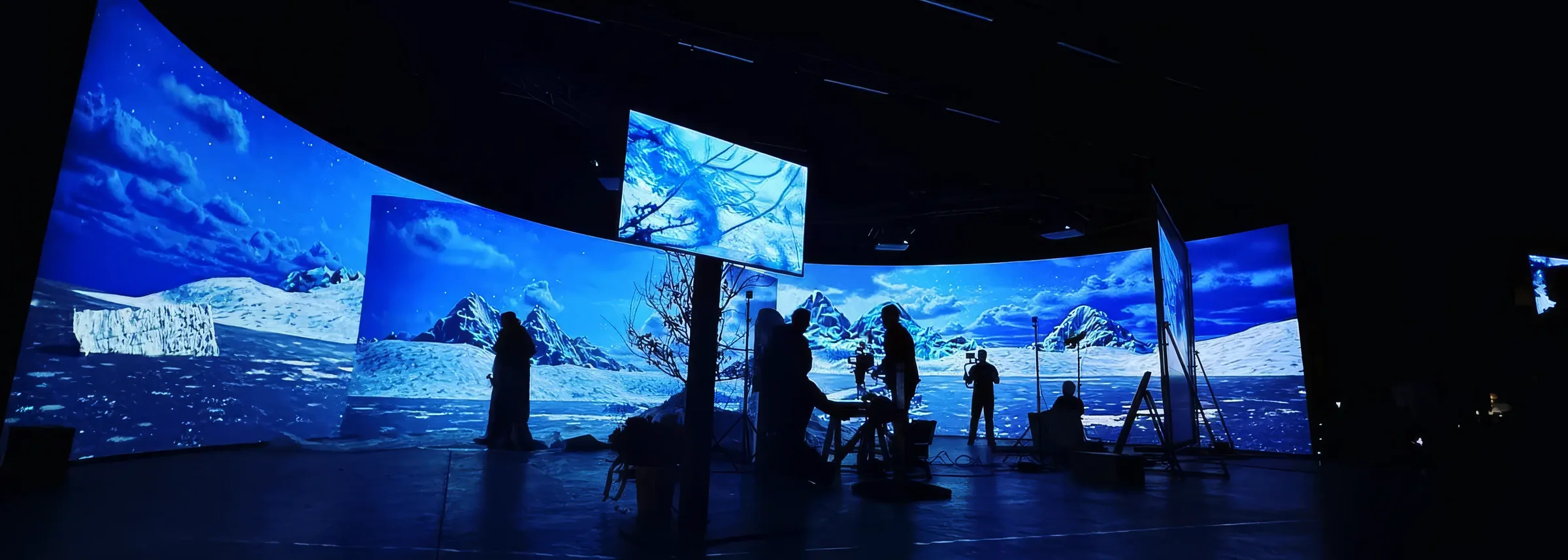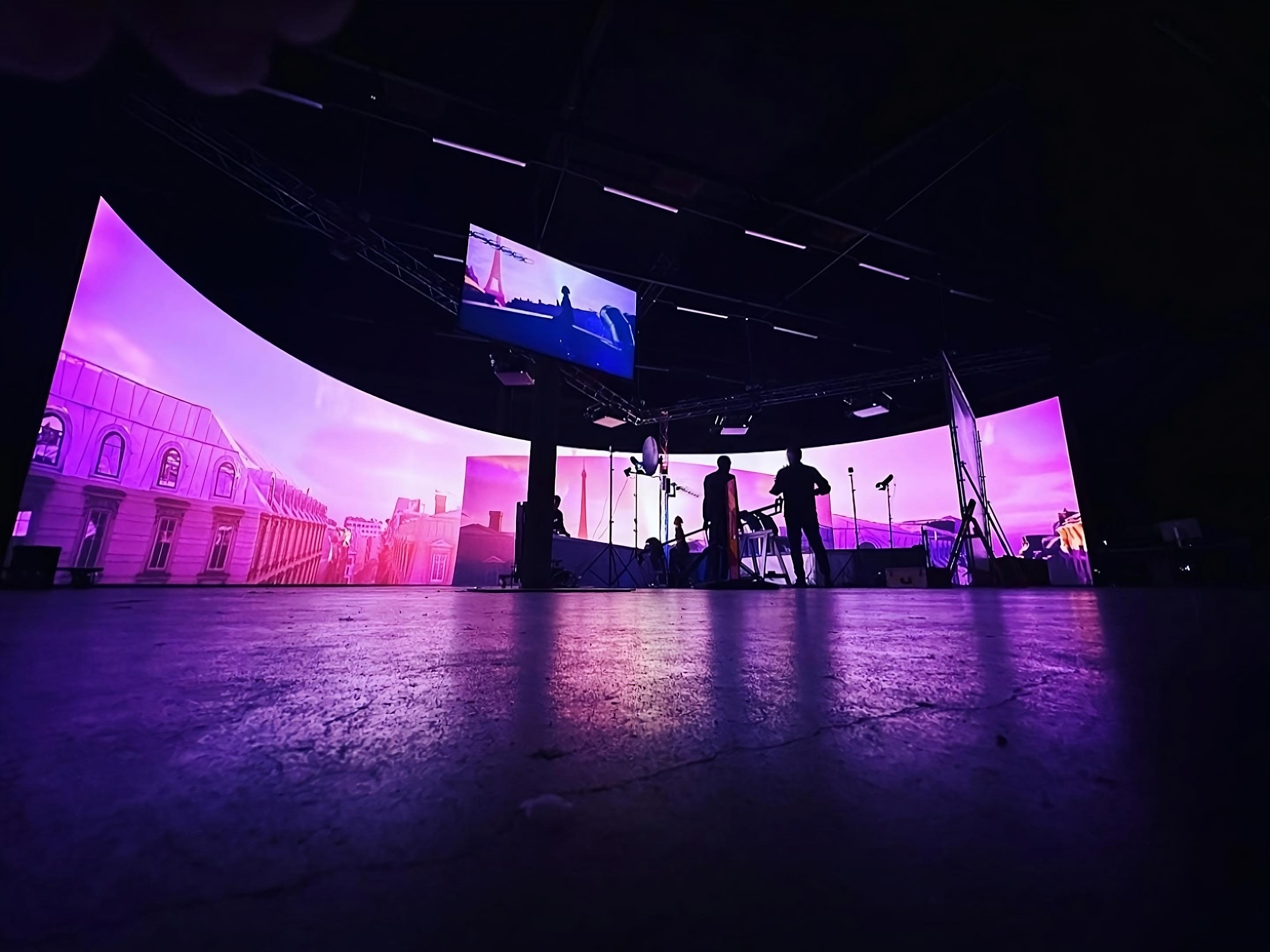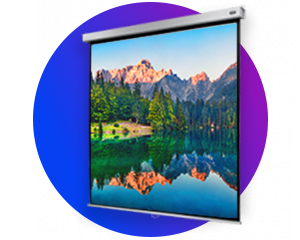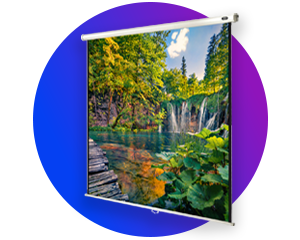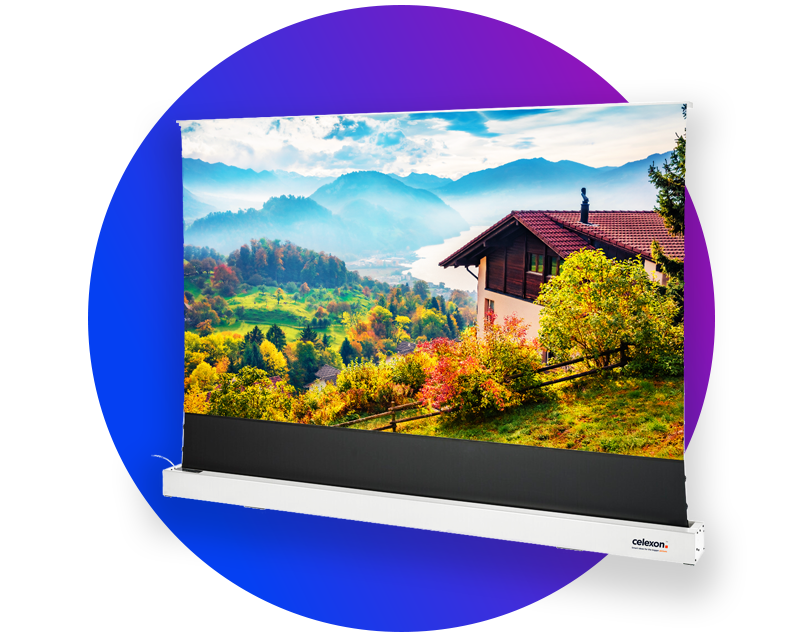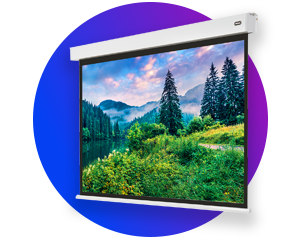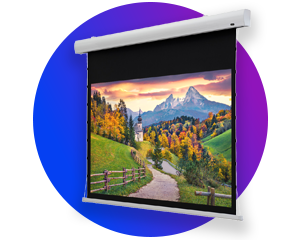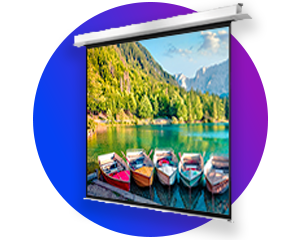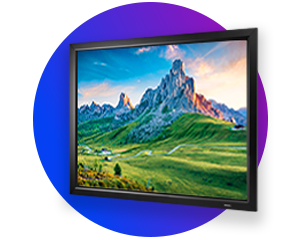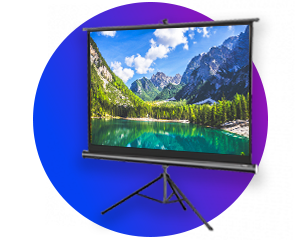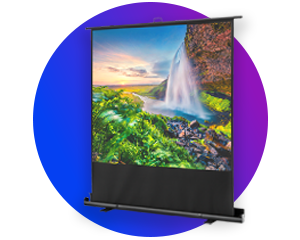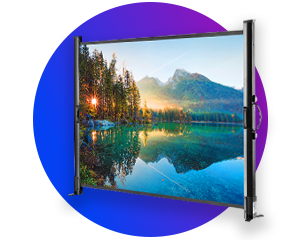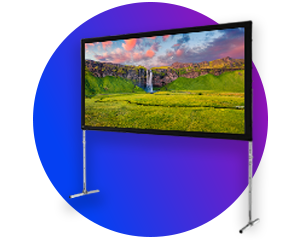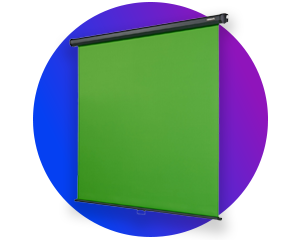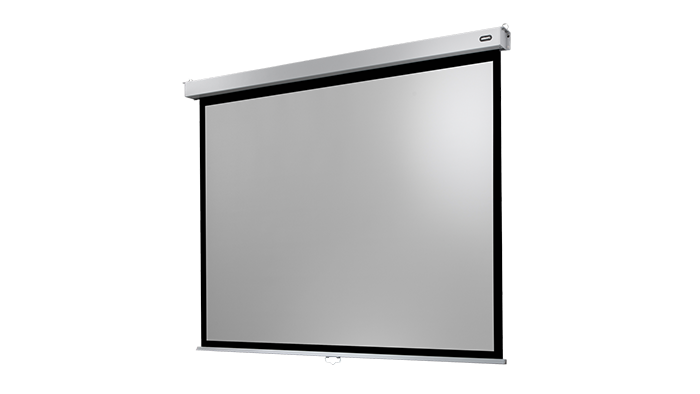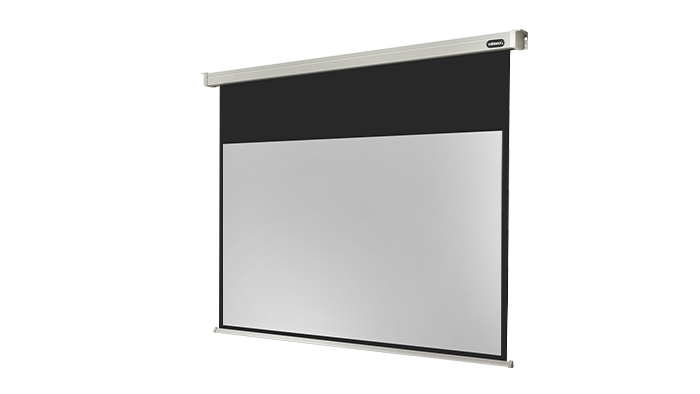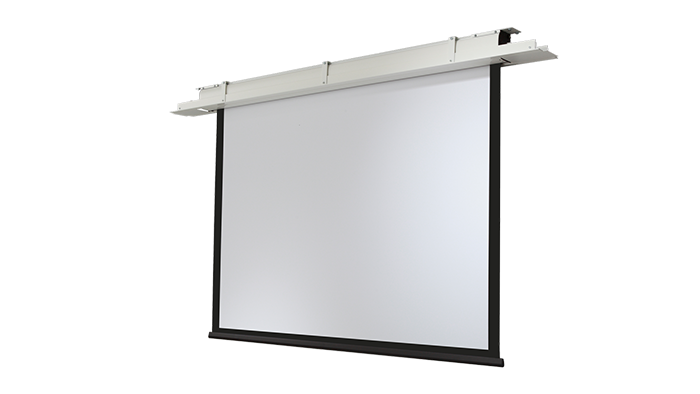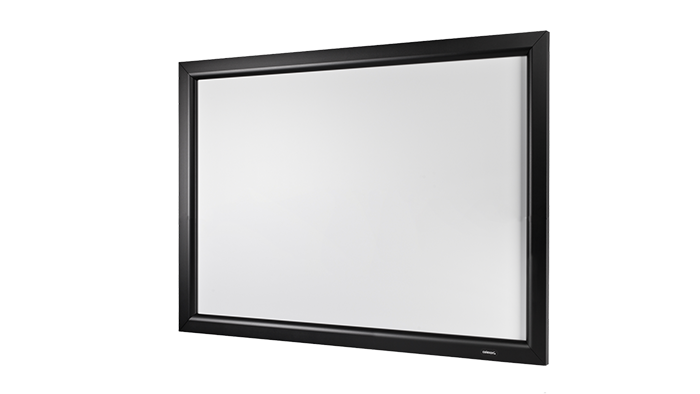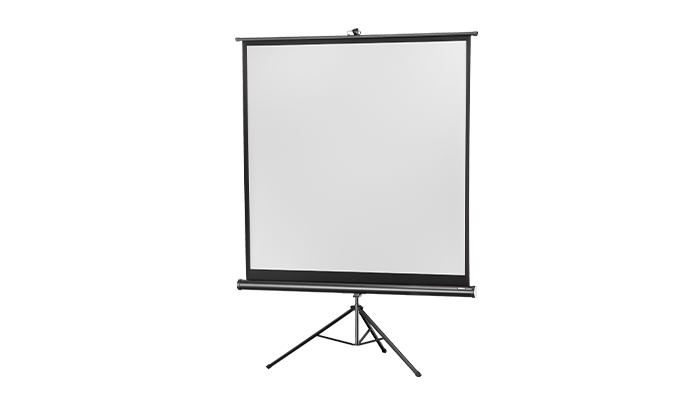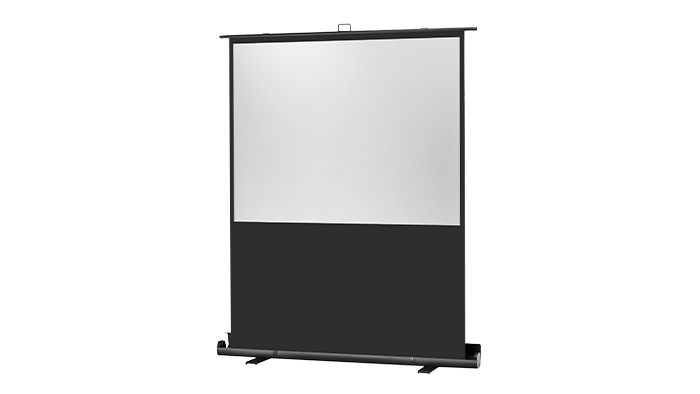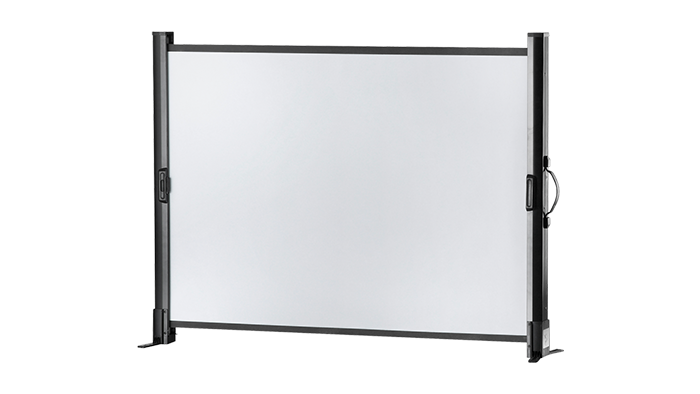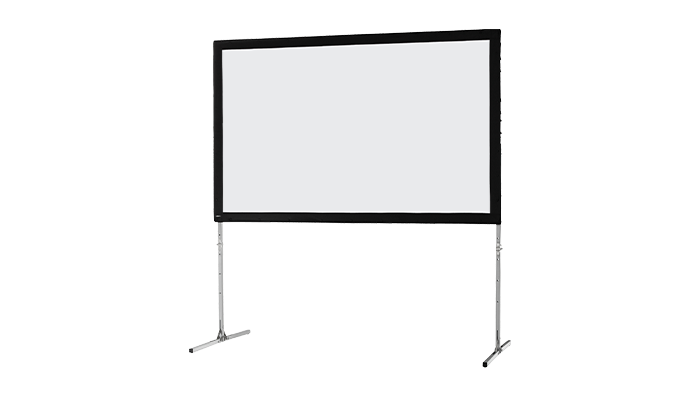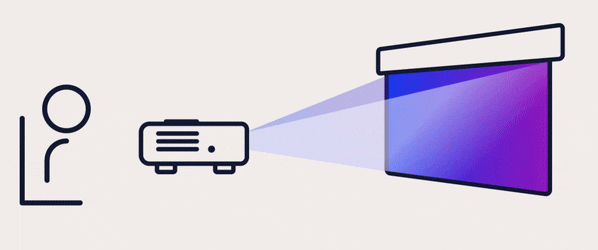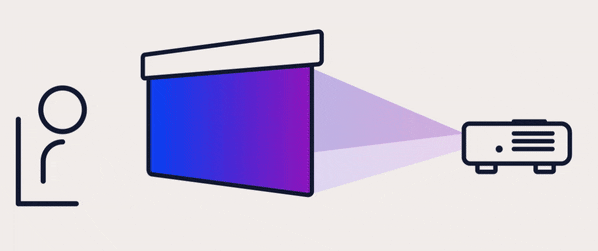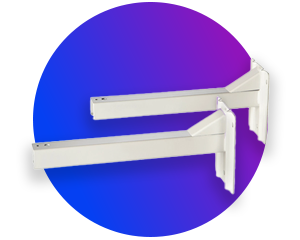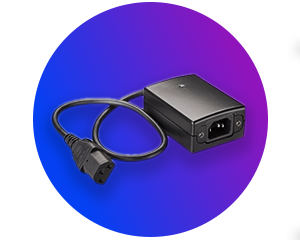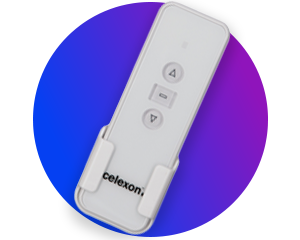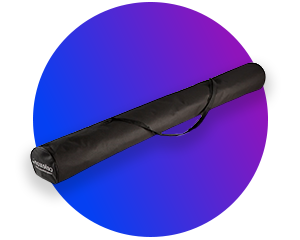Projection screens
How to find the right projection screen for your projector
Projection screens are the perfect complement to any projector. Compared to white walls or improvised surfaces, they offer a specially coated projection surface: for significantly better brightness, sharpness, and contrast. But which areas of application are projection screens suitable for?
Your advantages with a high-quality projection screen
Universal application possibilities: Projection screens can be used in a variety of ways: whether in the home cinema, for office presentations, at events or in educational institutions.
Home cinema experience: With a projection screen, you can bring image sizes of over 100 inches into your home - for an impressive cinema experience.
Optimum picture quality: High-quality projection screens ensure brilliant colours and clear contrasts - even in rooms with residual light. Special coatings reflect the projection light evenly.
Flexibility: Manual, motorised or mobile projection screens make it possible to extend the projection surface when required and make it disappear to save space when not in use.
Individual choice of size: Projection screens are available in different formats and sizes, so you can tailor your home cinema experience to suit the size of the room and the distance between seats.
Buying the right projection screen: these variants are available
Depending on the location and installation options, you can choose between stationary and mobile projection screens. Find out which screen suits your needs here.
Stationary projection screens for projectors
Stationary projection screens are permanently installed on the wall or ceiling: for permanent use with high image quality:
Mobile projection screens - flexible and transportable
Mobile projection screens are ideal for anyone who wants to use their projections in different locations:
Buying a projection screen - tips from the experts
Want to buy a projection screen but don't know what to look for? Our experts explain how to make the right decision.
How do I find the right projection screen format?
The correct aspect ratio depends on the intended use and your projector:
- 16:9 format: As a standard for home cinema, the 16:9 screen format is best suited as a projection screen for projectors with Full HD, HD ready and 4K (3840 x 2160) resolutions. The projection surface of the screen is completely filled by the projected image - for an immersive experience.
- 16:10 format: Projection screens with a screen format of 16:10 are mainly used for business presentations or in schools. The format is ideal for displaying documents, presentations, tables, and texts.
- 1:1 format: The 1:1 screen format is universally applicable and flexible - any aspect ratio can be displayed with this format, as the projection height can be variably adjusted. It is particularly suitable for use in schools for overhead projections or as a mobile screen.
- 4:3 format: Ideal for content in the classic 4:3 screen format, such as older films or presentations in a business environment. The 4:3 format is rather unsuitable for use in home cinemas.
What role does the gain factor play when choosing a projection screen?
- Gain 1.0-1.5: Standard for most applications: ideal for home cinema and offices.
- Gain > 2.0: Suitable for rear projection screens or very bright rooms.
- Suitable for daylight: Combine a projection screen with a high gain with a bright daylight projector (at least 3,000 lumens).
Which projection screen is best for my home?
A high-contrast projection screen (also known as an ALR screen - Ambient Light Rejecting) is the best choice for living rooms and rooms flooded with light. This projection screen variant was specially developed for environments with residual light where the light cannot be completely dimmed: as is the case in many living rooms.
Buy accessories for your projection screen
In our projection screen accessories you will find suitable brackets as well as additional operating and control elements such as trigger kits and screen remote controls that offer you more convenience. For safe and comfortable transport of your large projection screen, we also offer soft cases for tripod screens.
Customised projection screen solutions
With a custom-made projection screen, you determine the screen size, tube colour and additional screen properties. Our experts will be happy to advise you on your individual requirements.
